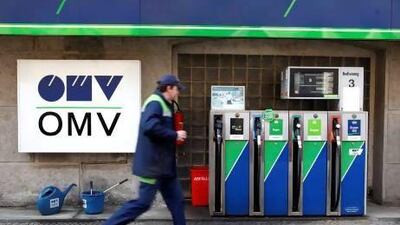OMV, the Austrian oil and gas company part-owned by Abu Dhabi, posted a 25 per cent jump in revenues after reviving production in Libya that was wiped out during the uprising.
The company's overall oil and gas production increased by 5 per cent last year thanks to Libyan fields, which had been completely shut-in for eight months during 2011, getting back online.
OMV cautioned, however, that the security situation there and in Yemen remained "volatile". Early this year, strikes in Libya also contributed to an overall drop in the country's production to 1.2 million barrels per day (bpd) from recovery levels of 1.6 million bpd.
"We benefited from the return of production in Libya and from a stabilised, on-target production in Romania and Austria," said Gerhard Roiss, the chief executive of OMV. "We managed to deliver a record financial performance while successfully progressing our strategy."
The emirate's International Petroleum Investment Company (Ipic) owns a 24.9 per cent stake in OMV, which is also a joint investor with Ipic on Borealis, the Austrian petrochemicals producer. Borealis, in turn, is a joint venture partner with Abu Dhabi National Oil Company on the emirate's specialised polymers producer, Borouge.
OMV said it would proceed with its goal of shedding €1 billion (Dh4.86bn) worth of refining and chemicals assets by next year, and would dedicate much of this year's €2.8bn planned capital expenditure on newly acquired gasfields in Norway.
Brent crude, the European benchmark, would continue trading above US$100 a barrel, it forecast.

